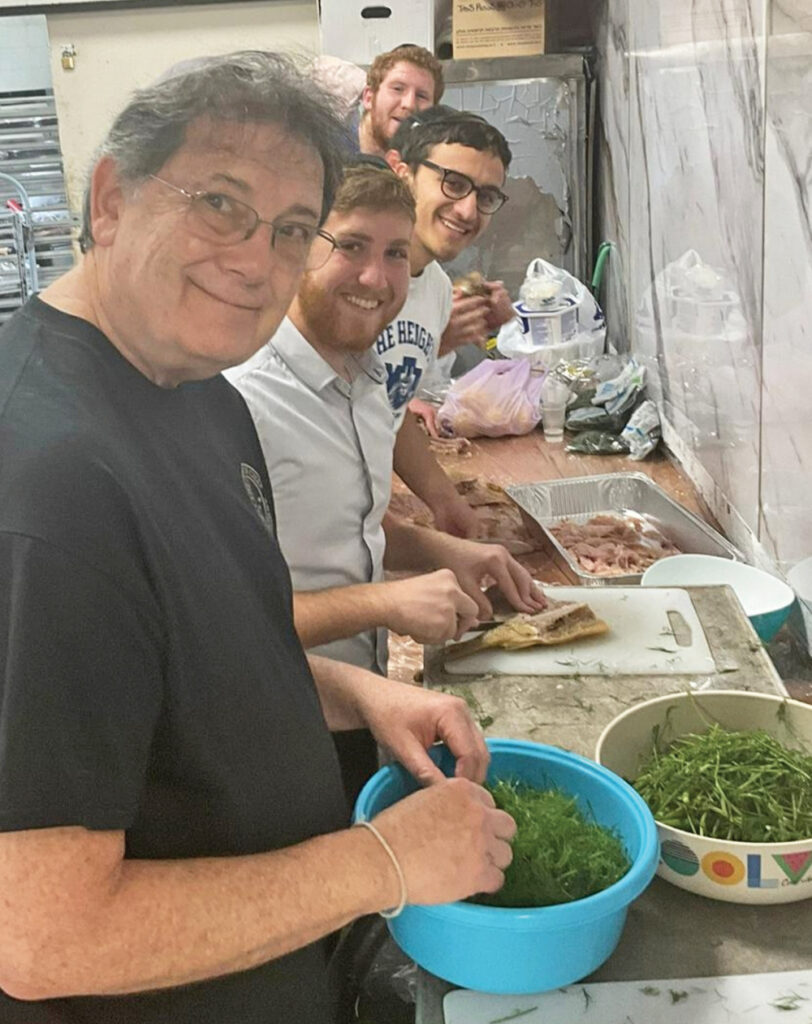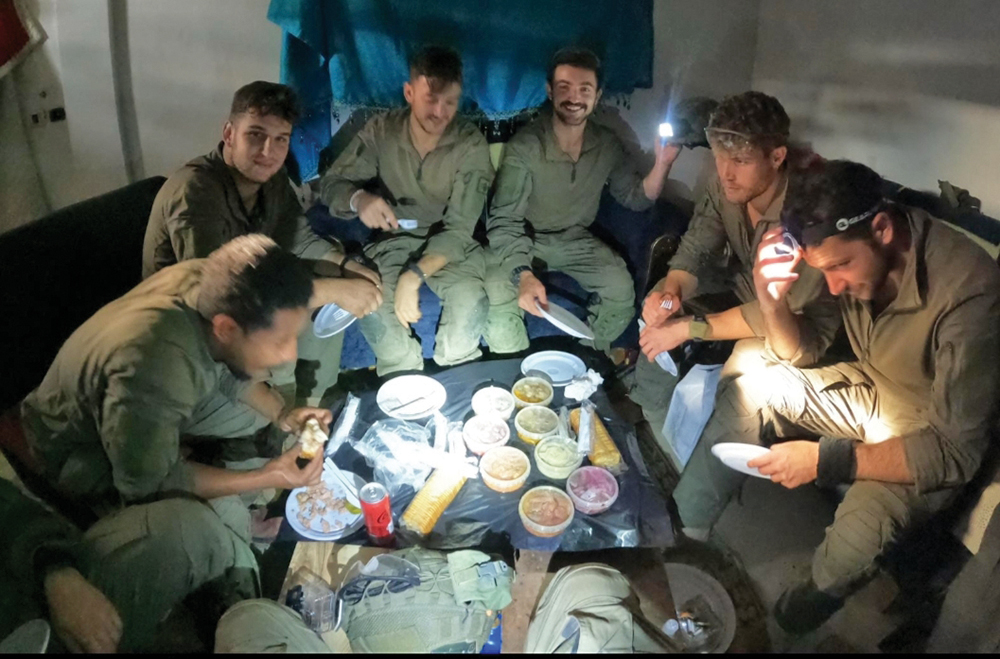
Meet Hillel Kuhr.
School psychologist, herring enthusiast, IDF father and supporter of Israel’s soldiers, Hillel has taken an unconventional path, blending his love for helping people with a culinary passion and a deep sense of duty to those on the front lines. I sat down with Hillel to learn more about his unique journey into the herring world and how he’s using his pickled passion to give back in inspiring ways.
Esti: Hillel, from school psychologist to herring aficionado; when and how did this all begin?
Hillel: About 30 years ago, I earned a degree in school psychology and began working in the field while living in Modiin. I’ve always loved herring, and it frustrated me that I couldn’t find truly great herring in Israel.
During the COVID lockdowns, I was allowed out to help others due to my profession. I realized that one of the best ways I could uplift people was through amazing Shabbat food,especially herring. With extra time on my hands, I started experimenting in the kitchen, giving herring as gifts to friends, then to stores and eventually expanding from there.
When the war began, I felt a deep need to reach my son, who was serving in Gaza and out of contact. Sending him Shabbat food—especially my herring—became a powerful way to stay connected. His unit gratefully accepted it, and that’s when I realized I could bring that same comfort to soldiers across the army.

How did you go from making herring as a hobby to running a full-fledged operation? Was there a specific moment when you realized this could become something bigger?
The turning point came when the first tanks went into Gaza. A soldier contacted me to say they had taken my herring kugel, and whiskey into Gaza and had a Shabbat kiddush in their tank. Hearing that moved me beyond words.
I knew then that I wanted to reach as many soldiers as possible, to bring them a taste of Shabbat whether on the battlefield or at base. I realized that with the right funding, I could do this for thousands of soldiers weekly.
Can you walk us through the varieties of herring you prepare? What makes your recipes unique?
At this point I have around 23 flavors of herring—from sweet American wine to spicy tuna, jalapeño and wasabi. I try to give everyone that special taste of home. One of my biggest sellers is my great-grandmother‘s recipe for chopped herring; aptly named Dad‘s chopped herring. It’s a very nostalgic, special herring.
Giving my father a taste of his childhood is a weekly honor for me.

One of the most inspiring parts of your story is how you’ve incorporated a mission-driven aspect into your business. What has the response been like from the soldiers and bases you visit? Could you share a memorable moment that’s stayed with you?
One of the most unforgettable moments was after the Israeli army eliminated Hassan Nasrallah. The unit that carried out the mission called me after Shabbat and said, “Your Shabbat kiddush kit gave us the push we needed to do the job.” They asked if they could get another kiddush kit the following week. Rest assured—they got their kiddush kit the next week, and the week after that too.
Can you walk us through what a typical kiddush kit looks like and how you’ve been able to keep up with your growing demand?
Since Oct. 7, we’ve been bringing the spirit of Shabbat directly to the front lines—in Gaza, Lebanon, Syria and bases across Israel. We set up full-fledged kiddush events with kugel, beef jerky, kombucha, herring, crackers and more. A typical kiddush kit includes words of Torah and encouragement from me and drawings from my children.
My kiddush kit provides a small but special moment of sweetness for these soldiers in the middle of chaos.
The feedback from soldiers is incredibly heartwarming. They tell me, “We feel Shabbat here,even when there’s no other sign of it. It feels like a taste of home and a reminder of the love and support from Am Yisrael.” It’s a hug from us and means more to them than we can imagine.
At our peak, we were reaching 3,000 to 4,000 soldiers a week. Due to limited funding, I’ve had to scale back and often cover costs from my own pocket. But I made a personal pledge: this will continue until the war is over. I stand by that promise.
Do you partner with any organizations or volunteers? How can others get involved in supporting your work?
The amount of volunteering that goes on weekly is incredible. I have Shaalavim yeshiva students helping me prepare kits and herring. Over 60 drivers are willing to go to any point to meet any soldier, at all hours. Businesses like Candy Corner provide treats weekly.
I couldn’t do any of this without the help of Young Israel, who provide an easy way to donate and offer tax benefits for U.S. donors.
Looking ahead, what are your hopes for the future, both for your herring business and its impact?
My main goal—with herring on and off the battlefield—is to provide an Oneg Shabbat to anyone I can reach. I want to have the best herring in the world, right here in Israel.
If you’re visiting Israel, come to Shaalavim! Volunteer, help me prepare herring and kiddush kits, and deliver Shabbat treats to soldiers across the country.
Let’s spread joy, one delicious bite at a time.
To donate a Kiddush kit for soldiers: youngisrael.org/donations/kiddush/
Or contact me directly: Hillel Kuhr—058-627-2247
Esti Rosen Snukal made aliyah from Teaneck to Chashmonaim in 2012. She is a contributor for the Jewish Link as well as an advocate and adopted mom for lone soldiers. Esti can be reached at snukalgirl18@gmail.com or on Instagram @esti1818











